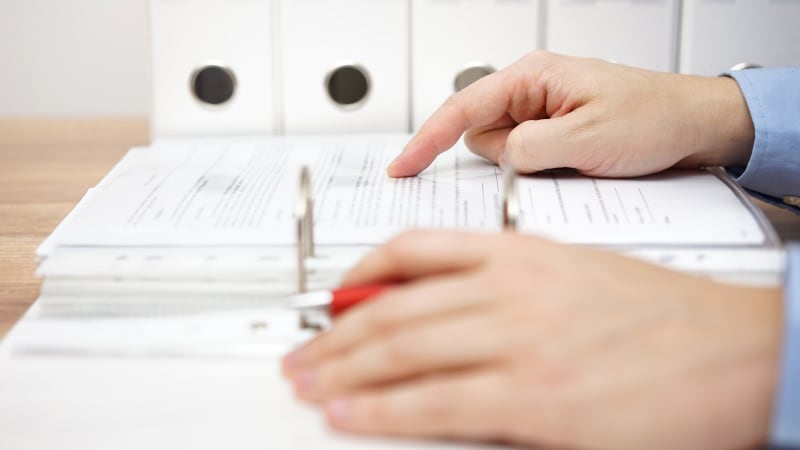Why credit history matters for background checks

Quick insights
- Background checks may include a review of your credit history and credit score.
- Credit checks during this process are considered soft inquiries, so they won’t impact your credit score.
- Background checks may assess your credit report, payment history and potential financial red flags like bankruptcies.
If you’re applying for a job or a volunteer position, a background check could help open the door or potentially block your entry. A background screening like this may include a credit check and sometimes that includes your credit report too. If you anticipate a background check, you likely have questions about what that means and how it can affect your credit.
Let’s investigate the potential impact a background check may have on your credit score, as well as what elements of your financial history are examined during the process.
Do background checks include credit history and credit score?
A background check that looks at your credit usually includes your credit score and report. Your credit report is a compiled record of your credit history, or your past credit behavior that includes your payments, the ages and types of accounts you have, and the total amount of credit you have. Your credit score is based on aspects of this credit history. Credit scores range from 300–850 and can be categorized from poor to excellent. Your credit score represents your creditworthiness within the credit-lending industry. That’s why your credit score may play a role in the information surveyed during a background check. After all, a background check can work as a vetting tool for your overall credibility.
Preparing for a background check
If you foresee a background check, that’s a great opportunity to find out more about your current credit standing. You can typically get a free credit report annually from each of the three major credit bureaus: Experian™, Equifax® and TransUnion®. This can help you get an idea of the impression your background check might make to potential employers before it happens.
Reasons for looking at credit in a background check
The common purpose behind investigating your credit in a background check is to investigate a prospective candidate for a position of responsibility, such as for employment, tenancy, government service or perhaps a voluntary project. This check may be run to look for indicators that you have handled responsibility well in the past. When it comes to credit, they may look at whether you made account payments on time, filed for bankruptcy or have a collections account.
Pre-employment background checks can help an employer gauge your ability to handle money responsibly. This may be used as a litmus test for how reliable you tend to be overall. In some regulated financial and government roles, credit checks may be legally required prior to being hired.
Even when not required by law, job candidates often get background checks if they are applying for management jobs with large financial responsibility or a job that handles large sums, such as a cashier and bank teller. If your credit history shows that you may be overwhelmed with debt, this might give employers hesitation about hiring you for financially sensitive jobs.
Does a background check affect your credit score?
No. A credit background check won’t affect your credit score. That’s because these types of checks are soft inquiries as opposed to hard checks, which can impact your credit. Soft inquiries, for example, might include an inquiry for account management, a background check or when you look at your own credit report.
In summary
When you apply for a position with responsibility, it’s a given that you could be assessed based on previous experience. That may include how you managed your money if the vetting process includes a background check. It may be wise to check your credit report and score beforehand.



